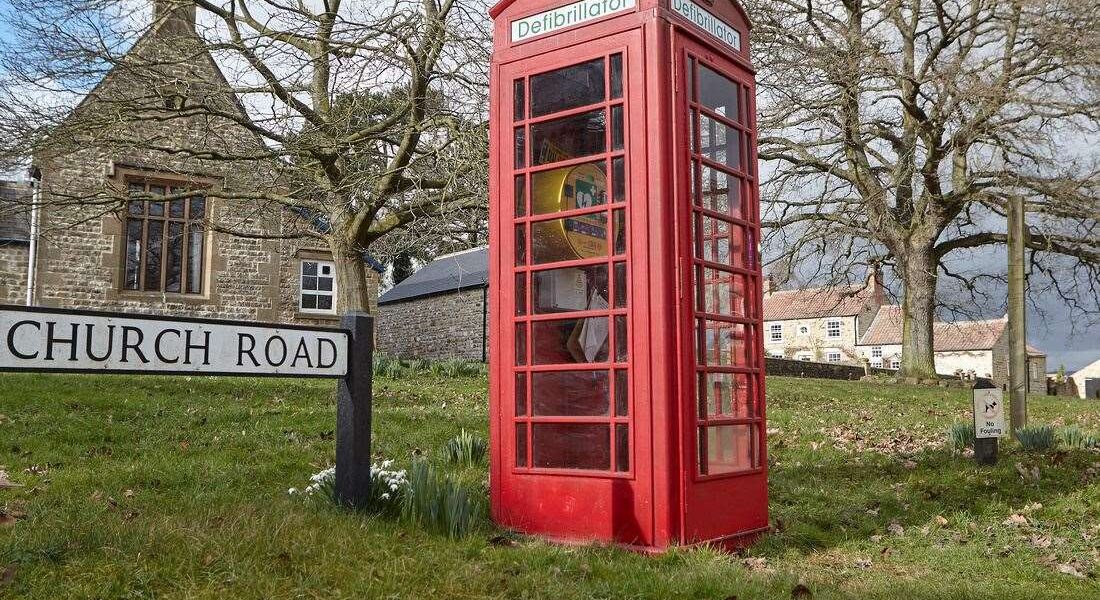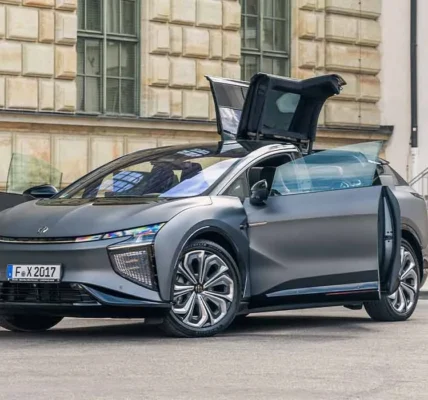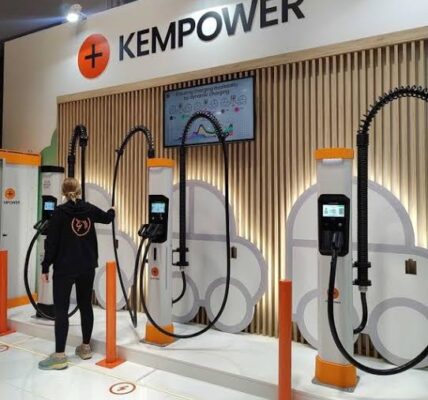The start-up and Digital incubation team at BT, called Etc., will, over the next two years, conduct technical and commercial pilots to convert or upgrade its street cabinets for EV charging units.
The pilots will provide critical insight into the viability to scale EV charging to more locations across its estate. The cabinets are currently used for providing copper-based broadband and phone services, and will be decommissioned as the ambitious nationwide upgrade to full fibre progresses.
The ‘national EV charger’ was designed by PA Consulting, now majority owned by Jacobs, in 2021 to be an iconic piece of street furniture but was not adopted by any charging companies.
- PA Consulting shows ‘iconic’ EV charger design
- UK design house launches EV charger technology division
Etc.’s early projections suggest that, over time, as many as 60,000 of the Group’s 90,000 cabinets may be suitable for upgrades to EV charging points; but neither the trials nor any potential scaling of the new EV charge network would present any change or disruption to the telecommunications services supported from the cabinets. However, decisions on any further scaling on this programme will depend on the success of the two years of pilots.
This will take the scheme perilously close to the 2030 deadline for the transition to electric vehicles in the UK with the ban on the sales of new vehicles with internal combustion engines.
The first phase of the EV charging pilots, open to Openreach and BT Group colleagues, is planned to kick off in Northern Ireland in the autumn of 2023, and will be expanded to the public with more pilot locations added across the UK later in the year.
While at an early stage, if successful this could make an important contribution to decarbonising the transport system and supporting the UK’s plans to get to net zero.
The team will scope a range of different technical, commercial and operational considerations with bringing this EV charge point network online, including cabinet location, power availability, customer accessibility, digital customer experience and engineering considerations as well as the civil planning issues of location, local council engagement and physical accessibility.
Commercial considerations include the public funding options, private investment, partnership, and wider financial modelling, which may well be a considerable issue, and whether this will be a dedicated BT Group venture or in partnership with others.
“With the ban on sales of internal combustion engine vehicles coming in 2030, and with only around 45,000 public charge points today, the UK needs a massive upgrade to meet the needs of the EV revolution,” says Tom Guy, Managing Director, Etc. at BT Group. “We have a once in a lifetime opportunity to connect for good in a whole new way by innovating around our cabinet infrastructure. The pilots are critical for the team to work through the assessment and establish effective technical, commercial and operational routes to market over the next two years.”
The UK Government has announced ambitions to grow the number of UK charge points from around 45,000 today to 300,000 by 2030, committing £1.6 billion in public funding for the transition. Forecasts for the public EV charging sector are evolving rapidly as consumer habits shift ahead even of the 2030 deadline for the end of internal combustion engine vehicle sales, but estimates generally see it climbing to be worth multiple billions of pounds by the early 2030s.
“The need for more EV charging represents an exciting business opportunity, so it is great to see BT Group announcing plans that could play a key role in growing the number of charge points and helping enable more people to make the switch to an electric car,” said Ben Nelmes, CEO of New Automotive.
The project has a number of opportunities and considerations and involves collaboration across the Group to assess the potential in this sector and test the technology. Crucially, the pilots will see no disruption to Openreach’s focus on building and connecting full fibre like fury across the UK; in fact, the pilots will provide early access to charging facilities for Openreach’s EV fleet, supporting with the fibre build.
BT Group already purchases 100% renewable electricity and will continue this through the EV charging pilots.








